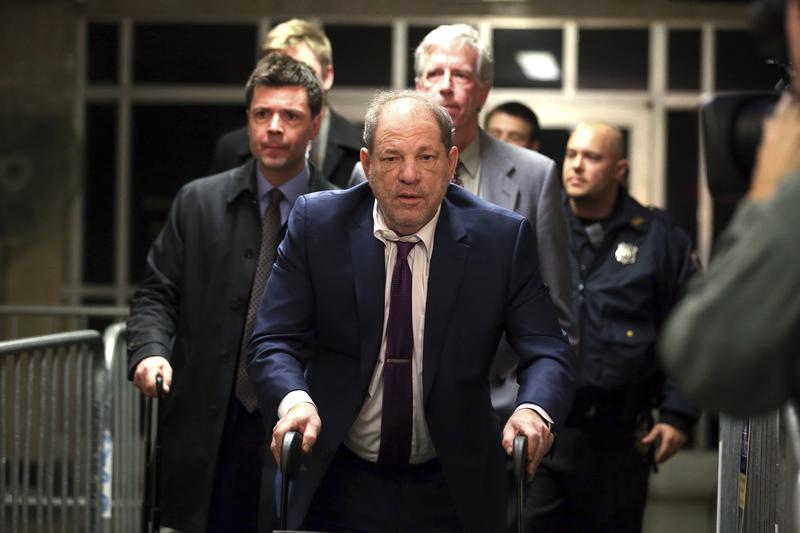
The Harvey Weinstein story launched the #MeToo movement, but prosecuting him for rape and sexual assault has turned out to be trickier than it first seemed.
More than 80 women have publicly accused the once-powerful movie producer since The New Yorker and The New York Times first began reporting on the allegations more than two years ago. But thus far, he's stood trial for just two of the encounters that allegedly happened in New York City. Closing arguments wrapped up last week and the jury started deliberating Tuesday afternoon.
Despite the fact that so many accounts of Weinstein's alleged behavior have been reported, Suzanne Goldberg, the director of Columbia University Law School's Center for Gender and Sexuality, told WNYC host Jami Floyd that it is often still difficult to prosecute people for sexual harassment and assault.
"The prosecution has to prove beyond a reasonable doubt that Harvey Weinstein committed rape, that he committed sexual assault, that he repeated these acts against multiple women," Goldberg said.
For the full conversation, click "Listen."
The Docket is our series in which WNYC’s All Things Considered host Jami Floyd takes a deep dive into the American legal system.
